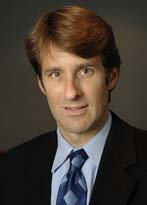Obama's Unclear Path to Immigration Reform
페이지 정보
작성자 관리자 작성일작성일 10-07-30 수정일수정일 70-01-01 조회6,658회관련링크
본문
Obama's Unclear Path to Immigration Reform
July 1, 2010
Edward Alden, Bernard L. Schwartz Senior Fellow
Edward Alden, Bernard L. Schwartz Senior Fellow
The Obama administration has two choices on the issue of comprehensive immigration reform. It can try to find a legislative path for pushing a bill through with little or no Republican support, as it did on healthcare and, to a lesser extent, on the pending financial reform legislation. Or it can try to change the terms of the debate in a way that makes bipartisan legislation more plausible--if not in an election year then at least early in 2011.
Unfortunately, President Barack Obama's July 1 speech at American University--his first major address on the topic--failed to do either.
On legislative strategy, the president did not go beyond the obvious: Without bipartisan support, comprehensive legislation will not pass. But he offered not even a hint of how such support might be found, or how the concerns of longtime Republican backers of reform such as Senator Lindsey Graham (R-SC) might be addressed.
Given the already long odds against legislation this year, however, the bigger disappointment was the president's failure to reframe the debate over immigration reform and security. Republican skeptics--who include past supporters of reform such as Graham Senator Jon Kyl (R-AZ), and Senator John McCain (R-AZ)--now insist that comprehensive reform must wait until the border is deemed "secure," without ever defining what a secure border means.
Obama limited himself to citing statistics that show clearly that the southwest border is now harder to cross illegally than any time in American history. But as the president and his administration know, the border will always be less than secure unless there is a comprehensive overhaul of the legal immigration system and much tougher workplace enforcement that take the pressure off of the borders. The demand for border security first simply holds immigration reform hostage to a goal that will never be reached without immigration reform. Can you say Catch-22?
Obama similarly missed an opportunity to link America's security to its legal immigration system. Backlogs and rigid quotas have made the United States less and less attractive for talented and ambitious immigrants. The president rightly noted that successive generations of immigrants have helped fuel American prosperity through scientific and commercial innovations. But he failed to point out that unless the United States remains the world's innovation leader, its military leadership will also be threatened. In other words, those who would leave in place a broken immigration system in the name of border security are threatening America's national security.
The president's speech does double-down on his commitment to finding a way forward on this difficult issue. But he needs to make much clearer what's at stake for the country's future.
<CFR>,2010/07/01
July 1, 2010
Edward Alden, Bernard L. Schwartz Senior Fellow
Edward Alden, Bernard L. Schwartz Senior Fellow
The Obama administration has two choices on the issue of comprehensive immigration reform. It can try to find a legislative path for pushing a bill through with little or no Republican support, as it did on healthcare and, to a lesser extent, on the pending financial reform legislation. Or it can try to change the terms of the debate in a way that makes bipartisan legislation more plausible--if not in an election year then at least early in 2011.
Unfortunately, President Barack Obama's July 1 speech at American University--his first major address on the topic--failed to do either.
On legislative strategy, the president did not go beyond the obvious: Without bipartisan support, comprehensive legislation will not pass. But he offered not even a hint of how such support might be found, or how the concerns of longtime Republican backers of reform such as Senator Lindsey Graham (R-SC) might be addressed.
Given the already long odds against legislation this year, however, the bigger disappointment was the president's failure to reframe the debate over immigration reform and security. Republican skeptics--who include past supporters of reform such as Graham Senator Jon Kyl (R-AZ), and Senator John McCain (R-AZ)--now insist that comprehensive reform must wait until the border is deemed "secure," without ever defining what a secure border means.
Obama limited himself to citing statistics that show clearly that the southwest border is now harder to cross illegally than any time in American history. But as the president and his administration know, the border will always be less than secure unless there is a comprehensive overhaul of the legal immigration system and much tougher workplace enforcement that take the pressure off of the borders. The demand for border security first simply holds immigration reform hostage to a goal that will never be reached without immigration reform. Can you say Catch-22?
Obama similarly missed an opportunity to link America's security to its legal immigration system. Backlogs and rigid quotas have made the United States less and less attractive for talented and ambitious immigrants. The president rightly noted that successive generations of immigrants have helped fuel American prosperity through scientific and commercial innovations. But he failed to point out that unless the United States remains the world's innovation leader, its military leadership will also be threatened. In other words, those who would leave in place a broken immigration system in the name of border security are threatening America's national security.
The president's speech does double-down on his commitment to finding a way forward on this difficult issue. But he needs to make much clearer what's at stake for the country's future.
<CFR>,2010/07/01








